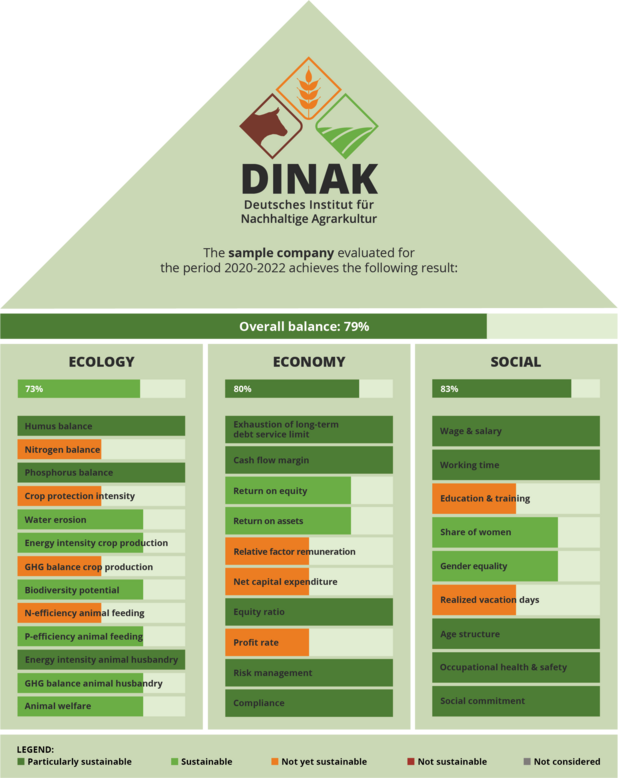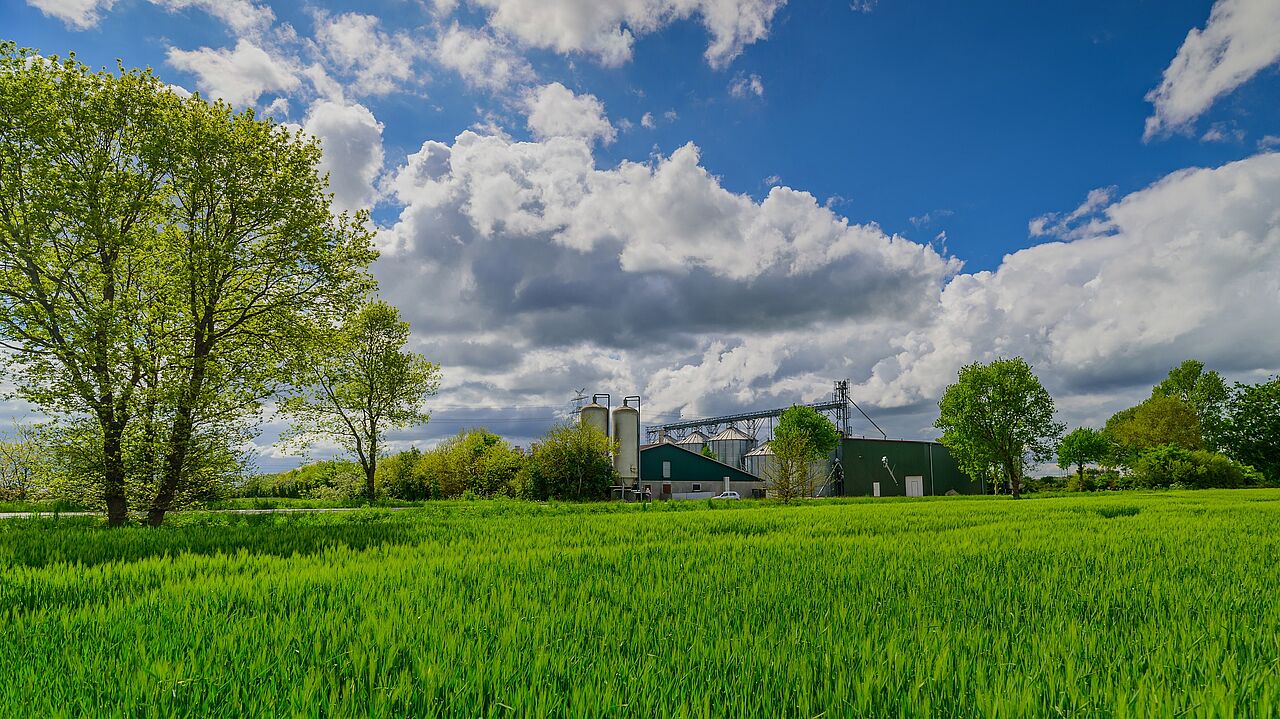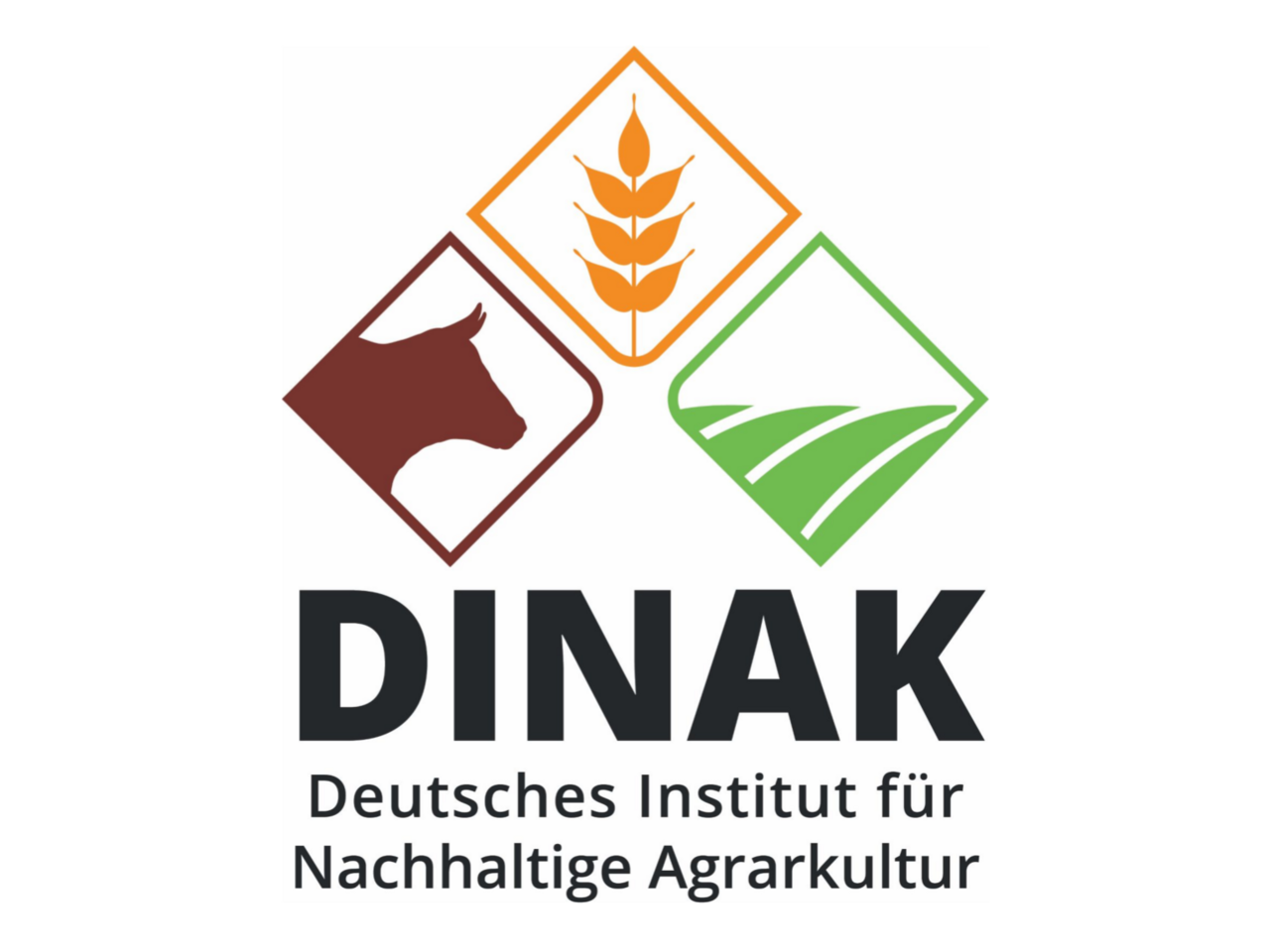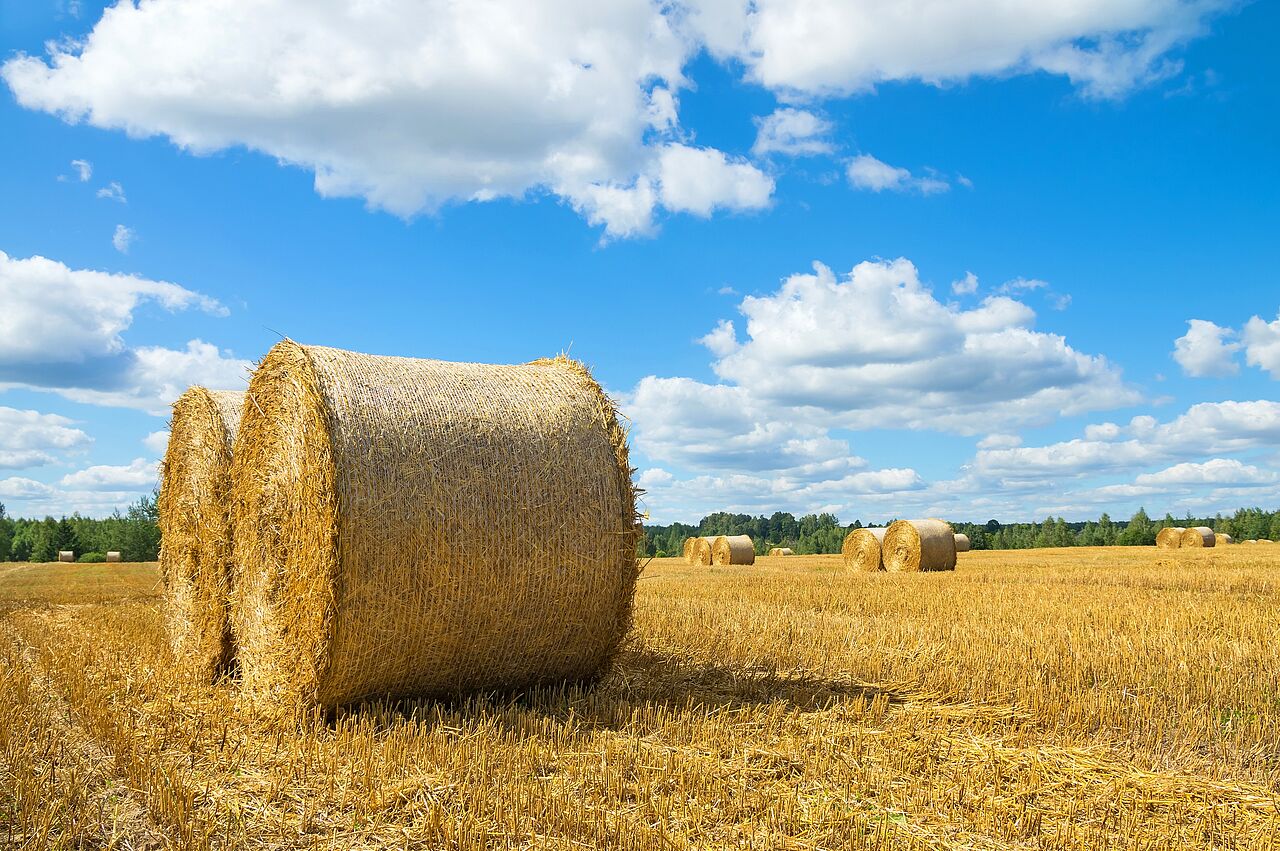
Sustainability management
Sustainability is the most important principle of agricultural, environmental and climate policy. It is regarded as the guiding principle for a sustainable, resource-conserving economic approach that is committed to animal welfare. Systems in which the regenerative capacity is preserved are described as sustainable.
Together with INL – Privates Institut für Nachhaltige Landbewirtschaftung GmbH, we offer sustainability assessment for farms through DINAK – Deutsches Institut für Nachhaltige Agrarkultur. With the help of about 30 individual indicators from ecology, economy, social as well as animal welfare, sustainability is measured and evaluated. The results provide our clients with important information on the strengths and remaining weaknesses of the company or production system. And they can be used for communication to society, e.g. for product differentiation. This is because more and more market partners of farms, e.g. banks or the processing industry, are attaching importance to addressing their own operational sustainability.
CO2 footprint
The carbon footprint is an important indicator from the environmental sustainability assessment. It makes the climate impact of a product or the entire production process visible. On the way to greenhouse gas neutrality by 2050, it is essential to know the levers that can be used to reduce negative impacts on the climate in the company. The carbon footprint shows where relevant greenhouse gases are released in agricultural production and where the greatest potential for savings and efficiency measures are located.
Our sustainability analysis is:
- objectively measurable
- scientifically sound
- validated
- holistic
- company-specific
Step by step to sustainability management in your company:
- Analysis and evaluation of the current situation based on the DINAK sustainability model
- Comprehensive results report with concrete statements on the individual indicators
- Recommendations for action to optimize operational management
- After three years, renewed sustainability assessment and comparison with the previous result



